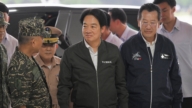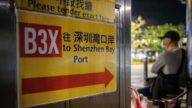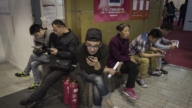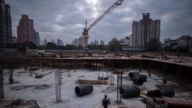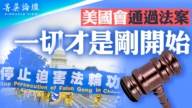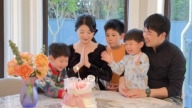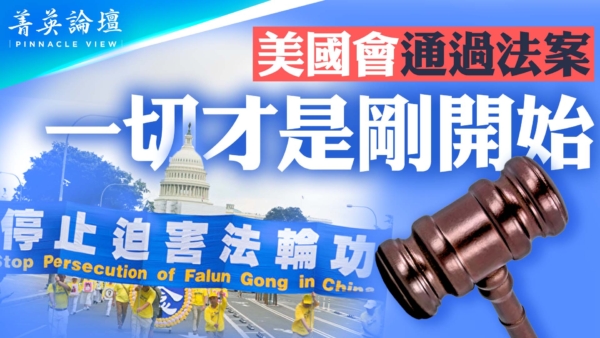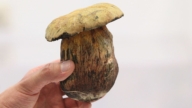【新唐人2012年9月25日訊】日本媒體證實,原定於27號在北京人民大會堂舉行的「中日邦交正常化40週年」慶典,被中方取消,顯示中日關係全面惡化。不過,和日本「國有化」釣魚島同時發生的中菲南中國海主權糾紛,卻沒有得到同樣的關注。評論指出,十八大前,中共以「維穩」為大,並不會有太多實質性的動作。
《新華社》英文版23號說,日本政府「國有化」釣魚島的行動破壞了應有氣氛,「中日邦交正常化40週年」活動「調整到適當時候舉行」。這是中日邦交正常化以來,首次取消10年一度的慶典活動,顯示中日關係惡化程度,兩國邦交史上罕見。
時事評論員夏小強指出,雖然「反日」和「民族主義」,向來是中共官方手裏的一張牌,這次之所以不同以往,是摻雜了中共高層左右雙方的博弈在內。
夏小強表示,「此次反日鬧劇和以往不一樣,在十八大後面臨清算的江派殘餘勢力周永康等,借釣魚島事件趁機起事,製造混亂,以達到習近平不能順理接班、延長周永康等權力的目地,頗有拚死一搏的味道,前幾天在全國各地上百城市反日遊行打、砸、搶,就是這種表現。」
日本《每日新聞》23日報導了慶典活動被取消的消息,並說,北京當局在試圖一點一點收緊大規模的反日活動的同時,爲了避免對日本的批判顯得太軟弱,必須要維持一種強硬的姿態。
上週六和週日,各大城市已沒有再出現大規模反日示威。香港《蘋果日報》說,這顯示當局不只沒有再組織民眾上街,連自願上街的愛國者也受到管制。如果當局只是如此單方面強硬壓制反日示威,不難想像,民間「反政府的聲浪」不會低過反日聲浪。
夏小強說「取消中日邦交40年紀念活動,是習近平利用外交手段向日本以示強硬,安撫民心,消除國內的壓力,但是在十八大前完成領導人交接班是中共高層的首要任務,所謂『維穩』是重點,我覺得對日本的這些強硬外交手段可能只是一種姿態,並不會有太多實質性的動作,還會暫時保持現狀。」
值得注意的是,雖然習近平在釣魚島問題上表現出強硬態度,但是習近平在「南海問題」上的表態卻有鮮明反差。他在9月21日出席「中國東盟自由貿易區論壇」開幕式上,強調中菲雙邊關係發展,並沒有提及中菲南海爭端。
而事實上,就在日本政府把釣魚島「國有化」的隔一天,9月12日,菲律賓總統阿基諾正式宣佈:把菲律賓西海岸外的南中國海海域命名為「西菲律賓海」。菲律賓總統府當天發佈的政令表示,「西菲律賓海」的標記,將出現在菲律賓政府發行的地圖上。
越炒越熱的「釣魚島」和受到冷處理的「南中國海」形成鮮明對比,旅居美國的中國社會問題研究人士張健指出,這體現出中共在領土問題上的態度。
中國社會問題研究人士張健認為「共產黨它就是這樣,它想賣的時候,海參崴已經賣掉了,他永遠的是不讓中國人知道,通過各種方式來控制。那麼釣魚島不能拿回來,釣魚島是中國一個…可以說中共應該感謝的,因為釣魚島是使它化解國內危機最強有力的地方。」
張建指出,中共已開始收束民衆保衛國土的主張,在國內也將無法持續表達。
張健說「作為一個中國人你知道你的領土、神聖不可侵犯的領土有多少被人家侵犯了,而你不能作聲的?保衛釣魚島的時候,首先想一想你的人權、你的話語權、你生存的權力有沒有得到足夠的保障?如果你能得到這些足夠保障的時候,那麼中國就基本上是跟其他的民主國家應該是站在一個起跑線上。」
海外媒體指出,中方目前想達到的目標,是對釣魚島實行「中日共管」。不過,《大紀元時報》報導,台灣的亞洲問題專家鄭繼文認為,建立「中日共管」,不大可能是中共已經確定的決策,因為中共目前正在全力籌備18大,在新的領導班子確定之前,中共不大可能對這類重大問題作出決定。
採訪/常春 編輯/尚燕 後製/王明宇
Diaoyu Island Issue Fires Up, As South China Sea Stays Cold
Japanese media confirmed that, China had canceled the 40th
anniversary celebrations of the stabilizing diplomatic relations
between Japan and China, originally scheduled to be held
in Beijing’s ‘Great Hall of the People’ on September 27.
It shows the overall deterioration of Sino-Japanese relations.
Sovereignty disputes between China and the Philippines over
the South China Sea arose alongside Japan’s
“nationalization" of the Diaoyu (Senkaku) Island,
yet did not receive as much attention.
Comments say, the Chinese Communist Party (CCP) place
importance on “maintaining stability” before their 18th National Congress, and is not taking much practical action.
On Sep.23, CCP mouthpiece media Xinhua’s
English version said,
the Japanese government’s nationalization of the
Diaoyu (Senkaku) Islands destructed the atmosphere in China.
Xinhua continued, “The 40th anniversary of the normalization
of diplomatic relations" will be held “at the appropriate time."
It’s the first time the celebration has been canceled;
it’s been taking place every 10 years since the normalization
of Sino-Japanese diplomatic relations—showing that the
degree of deterioration has reached levels rarely seen in history.
Political commentator Xia Xiaojiang points out that, although
the CCP has always pushed “anti-Japanese” and “nationalism” propaganda,
this time it’s different, as it contains the struggle
between the CCP’s left and right political wings.
[Xia Xiaoqiang, Political Commentator]:
“This anti-Japanese farce is different from ever before,
since after the 18th CCP National Congress, the surviving force
of the Jiang Zemin faction, Zhou Yongkang, will be liquidated.
The CCP hope to use the Diaoyu Islands incident to stir up
trouble and create chaos, in order to smoothly hold back Xi Jinping and extend Zhou Yongkang’s power.
This is the reason why anti-Japanese demonstrations emerged
in hundreds of cities across China a few days ago.”
On Sep.23, Japan’s Daily News reported on the canceled
celebration, saying Beijing authorities have tried to tighten up a little on the large-scale anti-Japanese uproar.
At the same time, the CCP maintained a tough stance towards
Japan, to avoid being criticized as being too weak.
On Saturday and Sunday (Sep. 22, 23), China’s major cities
saw no further large-scale anti-Japanese demonstrations.
Hong Kong’s Apple Daily says the authorities didn’t organize
people to demonstrate in the streets any more,
and even the Patriots’ voluntary protests were under control.
If the CCP had been tough in suppressing the anti-Japanese
demonstrations unilaterally, it’s not hard to imagine that
the wave of “anti-CCP" sentiment that would immerge
would reach a level no lower than the anti-Japanese uproar.
[Xia Xiaoqiang, Political Commentator]:
“Canceling the Sino-Japanese diplomatic relation’s 40-year
commemoration is Xi Jinping’s diplomatic means of
eliminating domestic pressure and showing a tough attitude to Japan, to pacify the Chinese people.
Yet, the CCP’s primary task is the leadership cross succession
in their 18th National Congress and the CCP’s so-called “maintaining stability" is a key issue.
I think these tough diplomatic means towards Japan may be
just a gesture; it will not have much substantive action,
and will maintain the status quo within China temporarily."
Xi Jinping shows a tough stance on the Diaoyu Islands issue,
contrasting with his stance on the South China Sea.
On September 21, he attended the opening ceremony of
the Forum on China-ASEAN Free Trade Area,
and stressed the development of Sino-Philippine bilateral
relations, while not mentioning their South China Sea conflict.
3 days after the Japanese government announced their
nationalization of the Diaoyu Islands, on September 12,
Philippine President Aquino officially announced to rename
their west coast of South China Sea as “West Philippine Sea”.
On the same day, the Philippine presidential decree released
that the Philippine government will be issuing maps marking the “West Philippine Sea" along the Philippine west coast.
Heated speculation surrounds the Diaoyu Islands events, in
strong contrast to the coldness over the South China Sea issue.
Researcher of social problems, Zhang Jian, who has lived in
the United States, points out that it reflects the attitude of the Communist China on the territorial issue.
[Zhang Jian, Social Problems Researcher]:
“It’s the communist party, when they want to sell, Vladivostok is sold;
the CCP will never let the Chinese people know,
and they maintain control through a variety of ways.
It cannot get the Diaoyu Islands back; the Islands are…
it can be said that the CCP should be grateful, because
the Diaoyu Islands are the most powerful tool for them to use to resolve their domestic crisis."
Zhang says, the CCP’s started to close up the Chinese people
to ‘defend’ the homeland; even advocates will not be able to continue voicing their expression within their country.
[Zhang Jian]: “As a Chinese, you should know
how many people are in your territory,
how many sanctity territories were violated,
and how you cannot make a sound.
When defending the Diaoyu Islands, you should think about,
first of all, have your human rights, your rights of expression,
and your rights to survive been protected enough?
If China could give enough of these protections, essentially
China should then be standing at a starting line alongside other democratic countries."
Overseas media point out that, China currently wants to
achieve Sino-Japanese condominium of the Diaoyu Island.
However, as the Epoch Times reports, Asia problem expert
Zheng Jiwen in Taiwan thinks,
to establish a “Sino-Japanese condominium” is unlikely
to be an identified decision made by the Chinese Communists.
The CCP was preparing fully for the 18th National Congress;
Zheng thinks, before the new leaderships are determined,
the CCP is unlikely to make decisions on such major issues.


